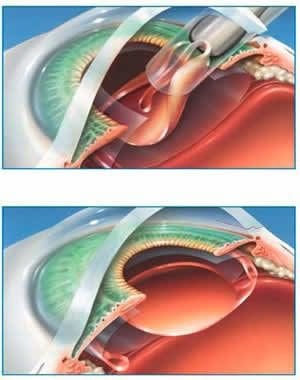Cataract Evaluation
WHAT IS A CATARACT?
We are all born with a soft, clear lens in our eyes. With time, these lenses can become cloudy, yellow, and hard. This condition is called cataract.
WHAT HAPPENS TO A CATARACT?
If you have an eye injury, certain diseases, or have taken certain medications – cataracts can occur at a younger age. They commonly cause blurred, dull vision, & difficulty with night vision and glare. Once the vision becomes an interference with your normal activities, it may have to be removed surgically. This is an elective surgery, and if you elect not to have the surgery, your vision loss will continue to get worse over time.
HOW IS A CATARACT REMOVED?
You are brought to the operating room, where an IV is placed and you are administered sedation to make you drowsy. Your eye is anesthetized with medications. Your eye surgeon will use a microscope and very small instruments to carefully remove the cataract from your eye. We will then insert a new, clear lens in its place. This lens, or IOL, should last your entire life. The lens has a power associated with it. Before surgery, your surgeon will carefully measure the length, curvature, and shape of each of your eyes to calculate the best IOL power for you.
HOW LONG IS CATARACT SURGERY?
Generally, cataract surgery lasts approximately 20 minutes, and you will go home the same day. You will be on eyedrops following surgery for about one month. Laser cataract surgery is a new option that we will be offering. Your surgeon will discuss this option with you if you are a candidate for this advanced technology in cataract extraction.
WILL I NEED TO WEAR GLASSES AFTER CATARACT SURGERY?
While traditional cataract surgery is intended to improve the quality of your vision and its crispness, it is not intended to make you independent of your glasses. Your surgeon will do many calculations to recommend an IOL power that will optimize your vision for your lifestyle. However, due to astigmatism and the nature of the traditional lens – we cannot guarantee that you will be out of glasses after traditional cataract surgery. If you are interested in minimizing your dependence on glasses, inform your surgeon so that she can evaluate whether you a candidate for advanced lens technology. Advanced lens technology has the ability to significantly minimize your dependence on glasses.

